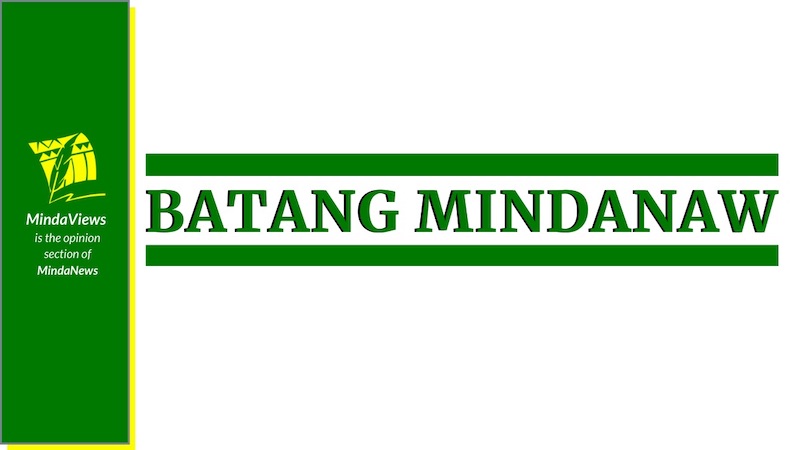 DAVAO CITY (MindaNews / 29 January) – Emails have been piling up, but I do not have the courage to open them all at once. Ever since March of last year, extra weights have been on my shoulder. If someone would ask me how I am doing, I am pretty sure I would say I am not okay for now. The dire need to just lie down and do nothing is always knocking at my door, and while my mind tries its best to battle the temptation, my body does otherwise.
DAVAO CITY (MindaNews / 29 January) – Emails have been piling up, but I do not have the courage to open them all at once. Ever since March of last year, extra weights have been on my shoulder. If someone would ask me how I am doing, I am pretty sure I would say I am not okay for now. The dire need to just lie down and do nothing is always knocking at my door, and while my mind tries its best to battle the temptation, my body does otherwise.
Scrolling on my Twitter feed at the comfort of my bed, I saw a tweet from an old distant friend of mine from my province. It says, “She is not okay, but she will be.” Startled, I quickly rose up, immediately clicked the message button, and engaged in a conversation with her.
“Kumusta?” I typically greeted, just like how most Filipinos do, for the sake of continuity.
“Haha, okay lang,” she replied after the popping ellipses faded away.
There it hit me—those two words that we usually say after that single-word question. It is amusing to think why we have a go-to answer for such a question, not to mention, it is, by default, the answer. However, I have always wonder why we answer okay lang after a kumusta.
Okay lang, but how okay are you? Okay lang, but what do you mean by that? Okay lang, but do you really mean it?
As our conversation escalated into a video call, I noticed how her eyes were in pain, but her smile showed the opposite. She said she was happy to see me, but her expressions showed otherwise. She barely looked at me as she was busy looking at her laptop screen, trying to finish her requirements.
Imagine if the conversation ended with okay lang. I would never know the actual situation. I would never know her struggles, what she is trying to deal with, or even just the real answer to my kumusta.
This short encounter with my friend made me understand how easy it is for one to say okay lang amidst the challenges that he or she may be facing. I realized the power of okay lang: how it draws the line between what one is trying to present and what is really felt. Based on our kumustahan, I noticed three reasons why we blatantly say it. Saying okay lang could be out of concealment, self-reassurance, or perhaps reduction—we took ourselves and our feelings for granted.
Okay lang hides one’s real emotions. There is no better concealer currently in the market that can hide what we really feel except these two words. To add more humor, it is the cheapest, most saleable, and most effective concealer that everyone could have. However, the real question of why there is a need to conceal our emotions still remains. Why do we hide our true feelings? Is it because of the difficulty in opening up to others, or the doubts on whether people would listen and understand one’s woes or not? We never know, and perhaps we never will… if we never ask what is beyond one’s okay lang.
Sometimes, okay lang is the key to self-reassurance. “Fake it ‘til you make it,” they say, and manifesting positivity brought by okay lang could be a good start to feeling okay. One needs to be okay, especially in these trying times, and that is because one needs to keep on going. However, one can only hope that the attempt of reassuring oneself would, indeed, have a good effect in the end.
Finally, okay lang could be a way of reducing the value of what we are truly feeling, simply because we think it would not matter. Some of us may imagine our daily protruding thoughts as a ball of messy yarn. We cannot communicate these clearly and straightforwardly in an instant due to its complexity. This could be the reason why it is easier to say okay lang. However, if we do so, we only reduce our real thoughts into words that may never encapsulate the words we mean to say.
The way we easily blurt out okay lang to every kumusta may show many clues, but we will never know the real thing if we will only stop there. As we live in the new normal that has affected our lives, may we greet each other the kumusta that we have taken for granted with our most genuine okay lang. Above all, may we remain true to ourselves as we acknowledge our feelings amidst these trying times.
Kumusta?
(Harvey Spence P Kentilitisca is a third-year AB Psychology student at the Ateneo de Davao University. He dreams of becoming a clinical psychologist in the next five years.)







